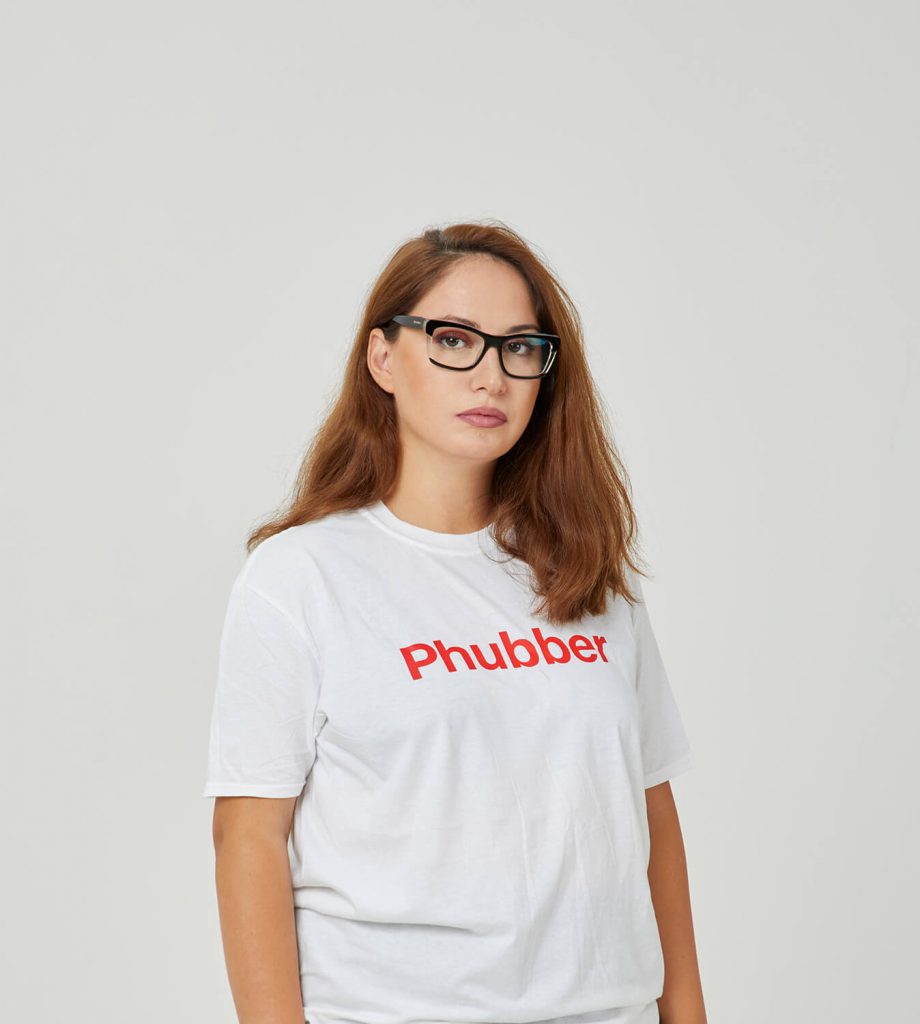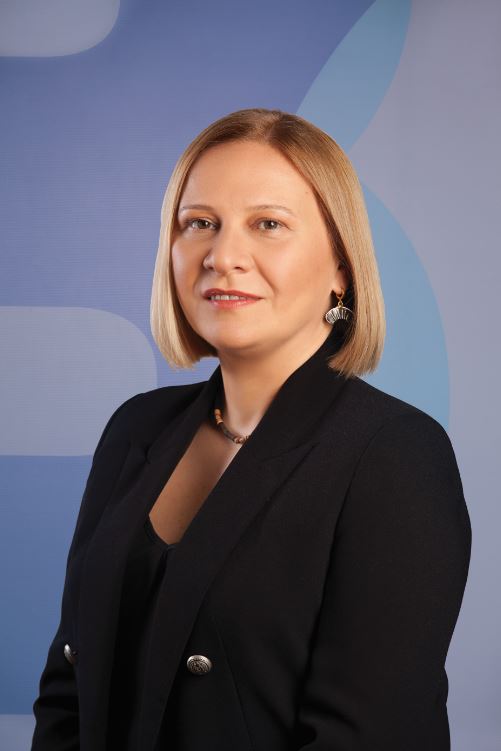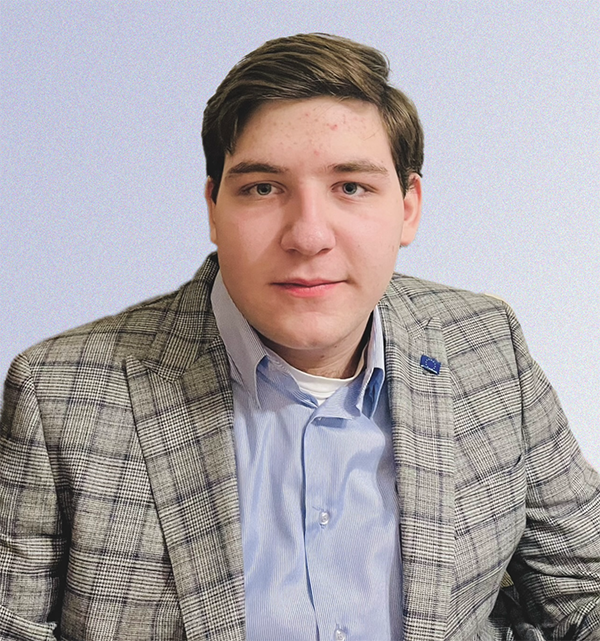Ambassador of SDG 12: Responsible Consumption and Production
Founder of Phubber, Anano Dolaberidze
You are the founder of a company that promotes sustainable fashion and circular economy in Georgia. Tell us more about Phubber.
Giorgi Chugoshvili and I founded Phubber in 2019. Since day one of the company’s existence, we have been delighted that our model has been a promoter of sustainable fashion. The fashion industry ranks second in terms of environmental pollution. As for the resale trend, it is growing, and, according to research, it is confirmed that by 2024, resale will be in first place in the fashion industry; that is, it will overtake fast fashion and so-called “luxury” fashion. It should be welcome that this tendency can be observed both worldwide and in Georgia. Phubber is one of the first platforms that has started to promote sustainable fashion.
What does your business model entail?This business model recognizes that we all have some items in our wardrobes that we don’t use. Instead of these items ending up in landfills, we can give them a second life. Therefore, Phubber is a platform where anyone can sell and buy clothes from their wardrobes. We promote already-manufactured items and give them a second life by extending their use as much as possible, thus reducing the demand for new production. Clothes are being circulated. I am glad that this trend has gained a foothold in Georgia. When we were starting to create Phubber, we thought it might not be popular or prove interesting in Georgia, despite the fact that platforms similar to Phubber have existed worldwide for over a decade. We are glad that Georgian society also favors this trend. Unfortunately, the awareness about sustainable consumption was not high at the initial stage. However, for the last two years, we have been actively trying to increase awareness and promote not only buying interesting items at a reasonable price but also this is the right approach to consumerism and the fashion industry in general. Making it part of customers’ habits and everyday life is important.

Ambassador of SDG 12: Anano Dolaberidze, Founder of Phubber
What are Georgia’s challenges in promoting sustainable consumption and production?
The 90s in Georgia are remembered as a period of economic hardship, and purchasing second-hand clothes was associated with a lack of finance. This may be the biggest problem. However, nowadays, this attitude has changed. Second-hand clothes do not mean you cannot afford to buy new ones; instead, you are making the right choice, and with every decision you make, including shopping, you support sustainable development. Currently, we have obtained results in certain respects. Although, in general, all over the world, the main driver of purchasing products on the resale platforms is affordability, just like those companies, we also actively try to nurture the idea that, first of all, this is the right decision. You do not buy manufactured brands and thus increase demand; you prefer what has already been created and try to extend its use. We are raising awareness in this regard, and progress is noticeable. Perhaps especially noteworthy is the Gen Z sector, for whom these values are familiar and valued; they don’t need too much communication about why they should buy second-hand items. Their main priority is environmental protection, and their interests and desires are based on these values.
Your company has been able to respond to these challenges; you are trying to raise public awareness and change attitudes. However, one company alone cannot do this. What are the trends in Georgia – have other companies also started promoting sustainable fashion and circular economy? And to what extent do you see the possibility of a partnership with them and the representatives of different sectors?
Unfortunately, in Georgia, the fashion industry is in a difficult situation in this direction because there are not enough factories and a workforce who would be aware of all this. Any process related to sustainable production is quite expensive – be it recycling or others. However, we are now working on a project towards upcycling. We are negotiating with several Georgian brands and designers to up-cycle hundreds of thousands of items placed on Phubber and to represent these collections in a new style.
Therefore, everyone must understand the meaning and essence of the problem. For example, in the Phubber application, we have a status as “fashion activist.” We grant this status to anyone who goes through the Phubber process and understands why s/he is a Phubber customer. If our sustainability and circular economy values are a priority for such “fashion activists,” we offer them various benefits.
Also, we plan to organize various events for our “community” where we will talk more about these issues.

“Our goal as a company is not only the sustainable development of fashion but also to raise awareness of consumers on these issues. We want to do more in this direction in the future.
On the one hand, we shall promote this practice, and, at the same time, we shall provide the public with the information and thus support them in making the right decisions. This would be my advice to companies and partner organizations.”
The target group is a big challenge for us. Among Gen Z, this is easier to achieve because, as I mentioned before, they have the relevant information, and it doesn’t take much communication effort to share these values with them. However, we want to activate this issue among millennials and the older generations.
When we started communicating about sustainable development, there were questions about what sustainable fashion means, what sustainability is about in general, and why it is needed. Sustainability is essential not only in the fashion industry but also in our daily lives. Due to my involvement in Phubber, I became interested and started searching for information, which greatly influenced my lifestyle and decisions. I feel responsible for each of my behaviors.
For example, you will not find disposable bottles or straws in our office. Also, we produce reusable bags to replace polyethylene when shopping in the market. Some small habits, ultimately, have a big impact on the environment. Our goal as a company is not only the sustainable development of fashion but also to raise awareness of consumers on these issues. We want to do more in this direction in the future. There is the statistics example: if the production of clothes worldwide were to stop in ten years, the existing clothes would be enough for everyone.
When you learn about the impact of sustainable consumerism on the environment and our health, on water, and so on, you start to realize the importance of making the right choices.
On the one hand, we shall promote this practice, and, at the same time, we shall provide the public with the information and thus support them in making the right decisions. This would be my advice to companies and partner organizations.




 Search
Search





